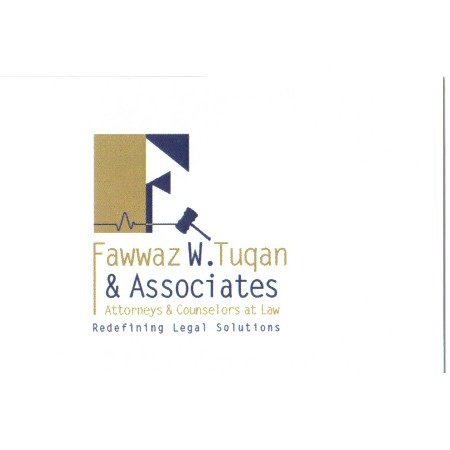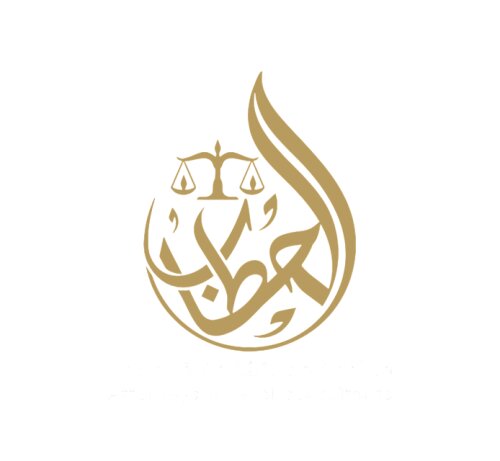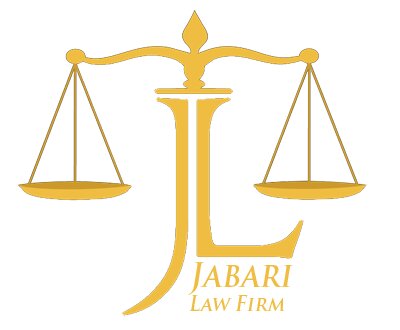Best Restructuring & Insolvency Lawyers in Amman
Share your needs with us, get contacted by law firms.
Free. Takes 2 min.
List of the best lawyers in Amman, Hashemite Kingdom of Jordan
About Restructuring & Insolvency Law in Amman, Hashemite Kingdom of Jordan
Restructuring and insolvency law in Amman, Hashemite Kingdom of Jordan, addresses the financial difficulties faced by individuals and businesses that are unable to meet their financial obligations. These laws are designed to balance the interests of creditors, debtors, and other stakeholders, while promoting economic stability. In recent years, Jordan has modernized its approach, incorporating international best practices through the Jordanian Insolvency Law No. 21 of 2018, which regulates insolvency procedures and establishes frameworks for both reorganization and liquidation.
Amman, as the commercial hub of Jordan, sees significant activity in terms of restructurings, reorganizations, and insolvencies. The legal frameworks in place are aimed at providing struggling businesses a chance to recover or to ensure an orderly winding down of affairs, all under judicial supervision.
Why You May Need a Lawyer
Navigating restructuring and insolvency laws in Amman can be complex and the stakes are often high. Individuals and businesses may require legal assistance in a range of situations, such as:
- Facing serious financial difficulties or insolvency
- Creditors needing to recover debts from insolvent debtors
- Stakeholders seeking to protect their interests during a company’s restructuring
- Navigating court proceedings, creditor meetings, or regulatory requirements
- Understanding the rights and responsibilities under the Jordanian Insolvency Law
- Preparing or contesting restructuring and liquidation plans
An experienced lawyer can provide essential guidance, help negotiate with creditors, ensure compliance with statutory requirements, and work to protect your personal or corporate assets.
Local Laws Overview
The legal framework for restructuring and insolvency in Amman is anchored in the Jordanian Insolvency Law No. 21 of 2018. This law introduced modern procedures for both restructuring and insolvency, including:
- Debtor in Possession Proceedings: Allowing debtors to maintain management and control of their affairs under court supervision.
- Restructuring Plans: Debtors may propose a plan to reorganize their debts, subject to approval by creditors and the courts.
- Judicial Protection: Debtors may receive temporary protection from creditor actions while a restructuring or insolvency process is ongoing.
- Liquidation Procedures: If restructuring fails, the law outlines the process for liquidation of assets and fair distribution of proceeds.
- Creditor Rights: Creditors have clear rights to participate in proceedings, vote on plans, and challenge inappropriate practices.
- Cross-border Insolvency: The law provides some mechanisms addressing international aspects of insolvency cases.
In addition, the Companies Law and Civil Code also intersect with insolvency matters, particularly for commercial enterprises. The Amman Court of First Instance typically oversees major proceedings in the capital.
Frequently Asked Questions
What is the difference between restructuring and insolvency in Jordan?
Restructuring is a legal process that enables financially distressed companies to reorganize their debts and operations to avoid liquidation. Insolvency, on the other hand, refers to the inability to pay debts as they become due, potentially leading to liquidation if restructuring is unsuccessful.
Who can file for insolvency or restructuring in Amman?
Both individuals and legal entities who meet the criteria set out in the Insolvency Law may commence proceedings, either voluntarily or through a petition by a creditor.
What happens after an insolvency petition is filed?
The court assesses the financial status of the debtor. If criteria are met, the court may appoint an insolvency trustee, grant temporary protection against creditor claims, and determine the next steps (restructuring or liquidation).
Can a company continue to operate during restructuring?
Yes, the law allows businesses to continue operations under the supervision of a court-appointed trustee while a restructuring plan is negotiated and implemented.
How are creditors involved in the process?
Creditors participate in meetings, review restructuring or liquidation plans, have voting rights, and may contest proposals or the conduct of the debtor or trustee.
How long does the restructuring or insolvency process take?
Timelines vary based on case complexity, but the law sets certain deadlines for plan submission and court reviews, often ranging from several months to over a year.
Will all creditors be paid in full during insolvency?
Creditors often receive partial payments based on asset liquidation and their priority status. Some debts, such as employee wages and government dues, may have priority according to the law.
Are personal guarantees enforceable during insolvency?
Personal guarantees are typically enforceable, but enforcement may be affected by the insolvency process, creditor agreements, and court orders.
Can foreign creditors take part in Jordanian insolvency cases?
Yes, foreign creditors have rights under Jordanian law to participate in insolvency proceedings, file claims, and receive distributions on par with local creditors.
Is bankruptcy the same as insolvency in Jordan?
No, bankruptcy traditionally referred to individuals' inability to pay debts, while the modern insolvency framework (including corporate insolvency) now covers broader aspects of financial distress and reorganizational procedures.
Additional Resources
For those seeking assistance or more information on restructuring and insolvency in Amman, the following resources may be helpful:
- Jordanian Ministry of Industry, Trade and Supply: Responsible for the registration and regulation of companies and provides resources on insolvency procedures.
- Jordanian Judicial Council: Offers information about court processes and the appointment of insolvency trustees.
- Jordanian Bar Association: Can assist in finding qualified insolvency and restructuring lawyers in Amman.
- Licensed insolvency trustees and advisors: Approved professionals who guide through restructuring and liquidation processes.
- Local Chambers of Commerce and Industry: Offer support and knowledge resources for business owners facing financial distress.
Next Steps
If you or your business is facing financial difficulty in Amman, it is wise to act promptly. Here are suggested next steps:
- Assess your financial situation and gather relevant documents (such as financial statements, contracts, and creditor lists)
- Consult with a lawyer who specializes in restructuring and insolvency law to understand your rights, obligations, and options
- Consider informal approaches such as negotiating with creditors under legal guidance, if appropriate
- If formal proceedings are needed, your lawyer can help you prepare and file applications to the relevant court in Amman
- Work closely with your legal advisor throughout the process to ensure compliance and to protect your assets and interests
Obtaining professional legal advice early can make a significant difference in the outcome of restructuring or insolvency matters. The relevant laws in Amman are designed to provide fairness and structure under challenging circumstances, and a qualified lawyer can guide you through each step.
Lawzana helps you find the best lawyers and law firms in Amman through a curated and pre-screened list of qualified legal professionals. Our platform offers rankings and detailed profiles of attorneys and law firms, allowing you to compare based on practice areas, including Restructuring & Insolvency, experience, and client feedback.
Each profile includes a description of the firm's areas of practice, client reviews, team members and partners, year of establishment, spoken languages, office locations, contact information, social media presence, and any published articles or resources. Most firms on our platform speak English and are experienced in both local and international legal matters.
Get a quote from top-rated law firms in Amman, Hashemite Kingdom of Jordan — quickly, securely, and without unnecessary hassle.
Disclaimer:
The information provided on this page is for general informational purposes only and does not constitute legal advice. While we strive to ensure the accuracy and relevance of the content, legal information may change over time, and interpretations of the law can vary. You should always consult with a qualified legal professional for advice specific to your situation.
We disclaim all liability for actions taken or not taken based on the content of this page. If you believe any information is incorrect or outdated, please contact us, and we will review and update it where appropriate.
















